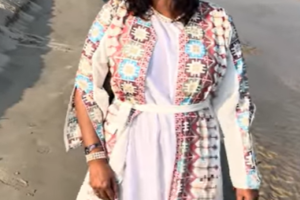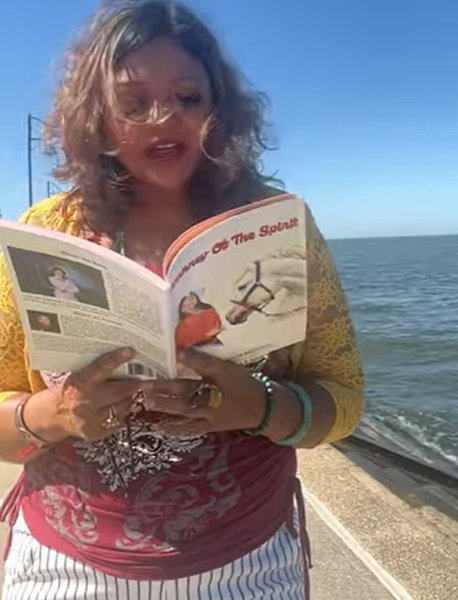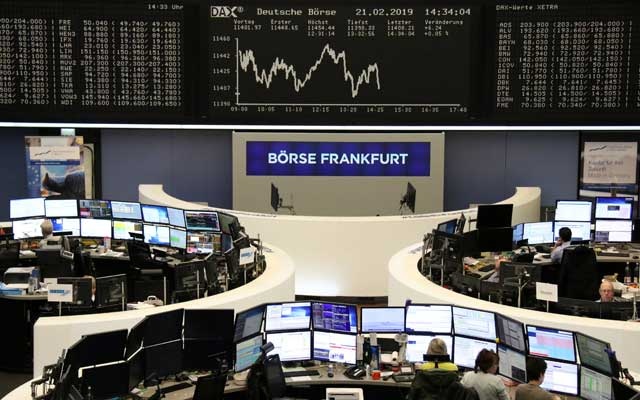The president of Indonesia, Joko Widodo, was sworn in for a second term Sunday with little public fanfare as security forces were on high alert and protests were prohibited amid mounting public frustration with his government.
In his inaugural speech to parliament, Joko, a former furniture manufacturer and Jakarta governor, presented a pro-business program of bolstering industry, building infrastructure and reducing regulations and bureaucracy.
He said nothing about critical issues that have surfaced since his election victory in April, including a law to weaken the fight against corruption and legislation that would outlaw sex outside marriage and restrict free expression.
As he left the presidential palace for parliament to take the oath of office, Joko told reporters that he had decided to keep the inauguration low-key because it was merely a continuation of his presidency.
“I experienced this five years ago,” said the president, who is popularly known as Jokowi. “Naturally, the second time for me feels normal.”
But the security measures reflected the increasing challenges for his presidency.
Ten days ago, the country’s chief security minister, Wiranto, was attacked and stabbed by a married couple as he got out of his car. Authorities said that the assailants were members of an Islamist terror group, Jamaah Ansharut Daulah, that has pledged loyalty to the Islamic State group and has been responsible for several deadly attacks in Indonesia.
Since the stabbing, police said they have arrested dozens of people affiliated with the group, commonly known as JAD, including several who were suspected of preparing to be suicide bombers.
At least 31,000 police officers and military personnel were deployed around Jakarta, the capital, to provide security for the inauguration. Major streets were closed, and armoured personnel carriers were parked around the city in a rare show of force.
Officially a secular nation, Indonesia has the world’s largest Muslim population and the largest direct presidential elections. But 20 years after the fall of the dictator Suharto, the country has become increasingly intolerant and religiously conservative.
Civil libertarians are concerned by what they see as an erosion of democracy and free expression under Joko. Some fear that he is turning away from fighting corruption and protecting human rights in favour of economic development, including building roads, ports, airports and power plants.
In recent weeks, he has angered many supporters by agreeing to weaken the respected Anti-Corruption Commission, prompting thousands of students to take to the streets in protest across the country. The student protests were some of the largest demonstrations since the fall of Suharto, prompting the ban on demonstrations in the week leading up to the inauguration.
Joko also gave initial support to a sweeping overhaul of the criminal code that would have prohibited abortion except in cases of rape and incest and outlawed sex outside marriage, effectively banning gay and lesbian relations. Additionally, it would have restricted free speech by making it a crime to insult the president and strengthening blasphemy and treason laws. The bill is expected to be reintroduced in the new parliamentary session.
Joko is also facing criticism over his handling of the worst forest fires since 2015, which have spread unchecked in Sumatra and Indonesian Borneo. The protests in remote Papua, which claimed the lives of dozens of people, have added to the concern about Joko’s management of the country.
The simmering frustration provides a sharp contrast to Joko’s first inauguration, when he rode in an open horse-drawn carriage and was greeted by thousands of enthusiastic supporters who filled the streets, some waving banners proclaiming “Jokowi Mania.”
“Last time, he was really with the people, with the parade and all,” said Bunga Sharon, 50, who lives in Jakarta. “This time, the security is insane. The security illustrates how he is being pulled farther from the people, the people who supported and elected him.”
The lack of enthusiasm was echoed by a trending hashtag on Twitter, #MatikanTVSeharian, meaning turn off the television the whole day.
A survey conducted early this month by the Indonesia Survey Institute, an independent polling group, found that Joko’s approval rating had fallen to 67%. While that would be high for an American president, it is low in Indonesia, said the poll’s executive director, Djayadi Hanan.
By contrast, when Susilo Bambang Yudhoyono was sworn in for his second term as president in 2009, his approval rating stood at 85%.
Djayadi said that the decision to ban protests before the inauguration had the potential to create more anger.
“It reminds people of the authoritarian era,” he said.
Fajri Wiranata, 29, who works on forestry issues for a nonprofit group, said he had high hopes for Joko in 2014 but was disappointed in his performance on a range of issues, including his mishandling of the recent forest fires.
“I don’t feel he is on the people’s side anymore,” he said. “It seems like he prioritizes the elite and the political parties’ needs.”
Also taking the oath of office was the vice president, Ma’ruf Amin, an influential cleric whose choice as running mate helped attract Islamic support but surprised Joko’s secular-minded supporters because of Ma’ruf’s conservative views.
The White House was represented at the inauguration by the secretary of transportation, Elaine Chao, the only Asian-American in President Donald Trump’s Cabinet.
The president’s eldest son, Donald Trump Jr., visited Jakarta two months ago to promote sales for two Trump-branded projects, one in Bali and one outside Jakarta. At the event, he denied that the family’s global business poses a conflict of interest for his father.
Dozens of heads of state and dignitaries from other nations attended the inauguration, including the Australian prime minister, Scott Morrison; the prime minister of Singapore, Lee Hsien Loong, and a vice president of China, Wang Qishan.
Joko told reporters that he would announce the composition of his Cabinet on Monday. He is considering naming Cabinet members from parties that opposed him during the April election, in a bid to build political support for his economic development agenda.
“After the inauguration,” he said, “it is most important for us to work together to bring this country to an advanced Indonesia.”






















